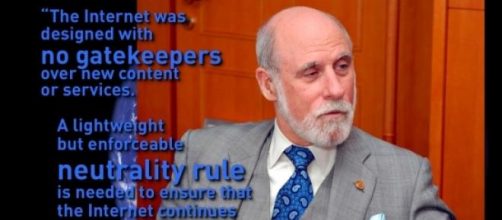The recent uprising within Indian tech communities over 'Net Neutrality', followed by Mark Zuckerberg's controversial Facebook post has torn the internet asunder. Few tech giants really believe that the 'Preferential treatment' to internet services would make the internet more accessible and affordable. On the other hand, smaller services and internet users fear privilege's potential misuse. The diatribe of Net Neutrality is as old as the internet itself, and once again it has shaken the world.
Net Neutrality-In a nutshell:
The principle underlying the phenomenal success of the internet is that any two devices connected to it, can communicate with each other without any restriction or discrimination of origin, destination or type of data.
This wide accessibility of the internet has paved the way for many innovations, competition, and more importantly, it has generated new means of protecting civil rights like freedom of expression.
Violation
Any internet service provider (ISP) limiting/discriminating users' accessibility to certain services is violating Net Neutrality. There could be many reasons for an ISP to limit the access, but three main reasons to violate Net Neutrality are:
1. Comply with the law: With all it's resources, the internet also brings with it malicious content, Pornography and various unlawful activities. Governments often ask ISPs to block such content for society's good.
2. Maximize Profits: Many ISPs demand the right slow/limit/channelize internet traffic by their own will.
This gatekeeper's role lets them control the traffic and favor a specific content ultimately leading to the profit of the company.
3. For privatized censorship: Blocking measures to stop unwanted content often lead to a perversion to block competitors' services. For example, "Conciliation Resources" - a website against anti violence was accidentally blocked by pornographic filters on UK networks.
Internet.org
The ongoing debate about Internet.org is an initiative from Facebook to bring together the parts of the world that have been left out of the internet revolution. It claims to facilitate users to access limited apps, but at a very minimal cost or indeed no cost at all. This also brings with it the possibility of new business models.
Tech giants like Microsoft, Reliance, Qualcomm and Samsung are also the part of the initiative.
On 17th April in a lengthy Facebook post, Mark Zuckerberg stated that Internet.org doesn't violate Net Neutrality and yet helps internet make inroads to rural business models. But the recent opt out of several Indian services has only added to the Net Neutrality movement. Mark's speculation over coexistence of Internet.org with Net neutrality seems to be a never ending debate.
“Allowing broadband carriers to control what people see anddo online would fundamentally undermine the principles that have made theInternet such a success”. Vint Cerf, founding father of the Internet

